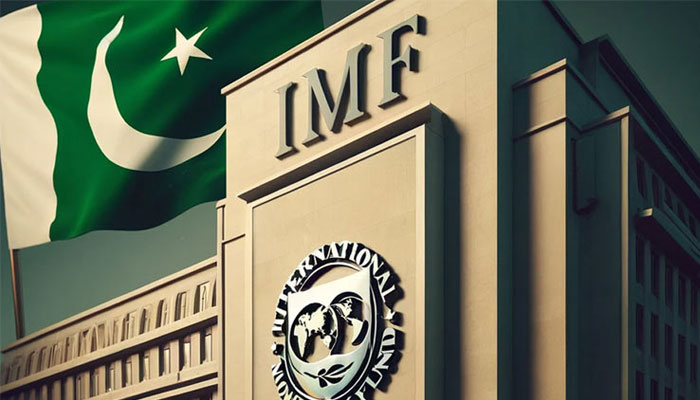Islamabad– A technical delegation from the International Monetary Fund (IMF) is set to begin crucial discussions in Islamabad today regarding Pakistan’s appeal for over $1 billion in additional funding aimed at enhancing the country’s climate resilience. This follows the government’s ongoing efforts to secure financial support under the existing $7 billion Extended Fund Facility (EFF).
The IMF team is expected to conduct a policy review early next week, evaluating Pakistan’s progress under the EFF agreement. The government is hoping to secure between $1 billion and $1.5 billion to support its climate change mitigation strategies.
Sources informed Aaj News that the upcoming talks will also cover vital issues such as the imposition of a carbon levy, the promotion of electric vehicles, and the implementation of subsidies to support sustainable development. These discussions are part of Pakistan’s broader initiative to align its economic policies with international standards while addressing pressing climate change challenges.
Finance Minister Muhammad Aurangzeb, speaking at the Faisalabad Chamber of Commerce and Industry, emphasized that the IMF’s willingness to provide additional funding is contingent on Pakistan’s commitment to tax reforms. He stressed the need for a tax system that garners public trust, noting that reforms must be implemented to improve the functioning of Pakistan’s tax authority.
As part of the reform agenda, Aurangzeb also acknowledged the “significant burden” on salaried individuals and stated that by November, employees from seven sectors would be able to file their tax forms online.
The IMF delegation has already signaled the need for stricter monitoring of Pakistan’s public finance management, governance, and budget utilization. The delegation has called for increased transparency and modern oversight mechanisms to ensure effective use of funds.
The IMF team will engage with several key ministries, including those of planning, finance, climate change, petroleum, and water resources, as well as collaborate with the Federal Board of Revenue and disaster management agencies. These engagements are expected to continue over the next three weeks.
In addition, an IMF staff team is scheduled to visit Pakistan in March for the first review of the country’s EFF program. The delegation will also discuss Pakistan’s request for support under the Resilience and Sustainability Facility (RSF). The technical team’s presence in Pakistan since late February aims to address key technical matters related to the potential RSF arrangement.
Pakistan has one remaining benchmark related to the necessary amendments to the Sovereign Wealth Fund, which are due by the end of December. However, the country has already met other key governance and financial safeguard conditions.
Read more: IMF Official Links Pakistan’s Economic Challenges to Revenue Generation Issues
The planning ministry has kept all stakeholders, including federal ministries and provincial governments, informed about the selection criteria and methodology for projects in the upcoming Public Sector Development Programme (PSDP).




Comments are closed, but trackbacks and pingbacks are open.